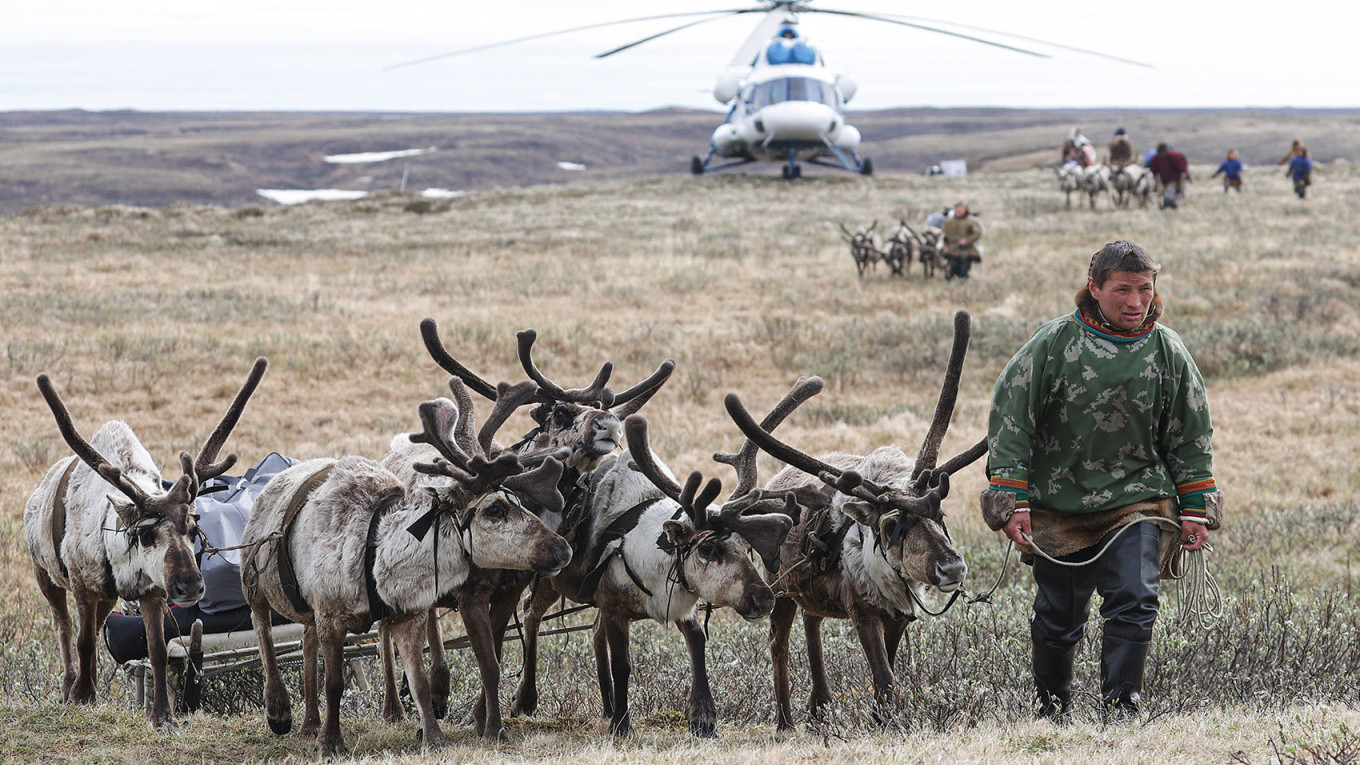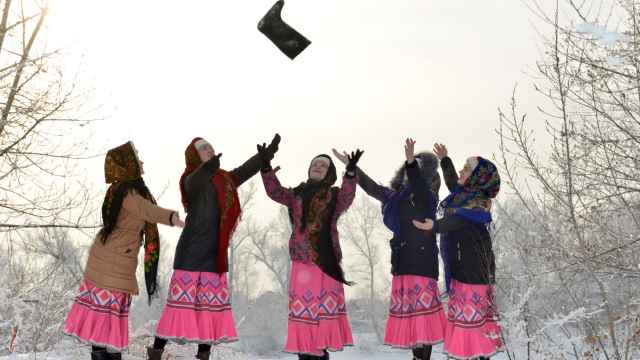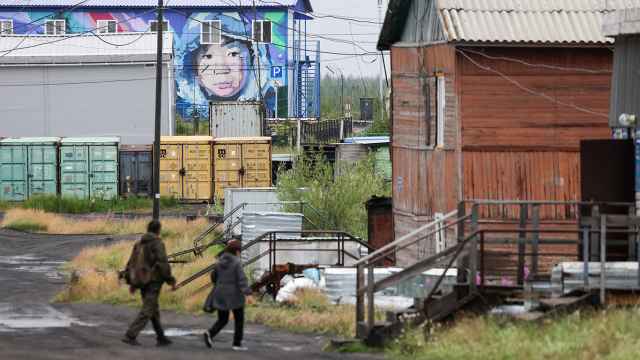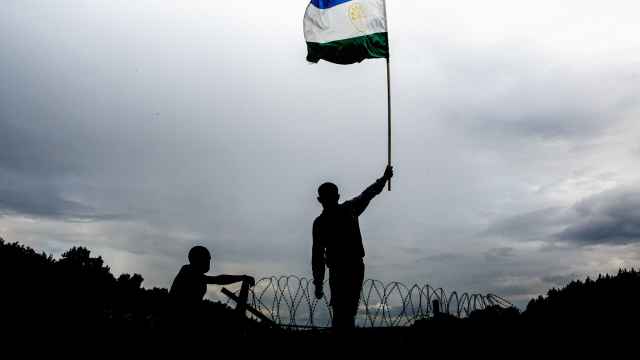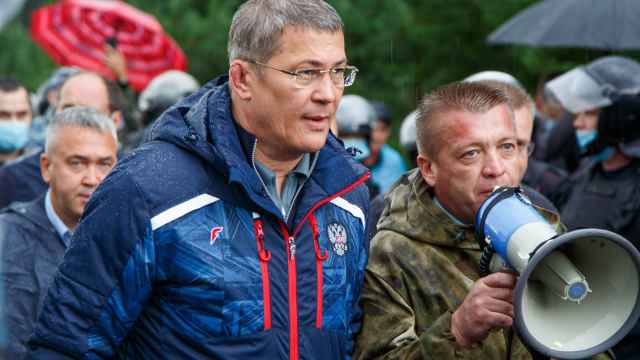Russia last month released its new policy framework on the sustainable development of Indigenous minority peoples of the North, Siberia and the Far East.
The document will guide policy and budget spending decisions on both the federal and regional level over the coming 11 years.
Boasting of Russia’s supposed achievements in protecting the rights of Indigenous minorities, it also sets an array of ambitious goals aimed at preserving these groups’ traditional lifestyles and cultural and linguistic diversity, as well as providing them with better educational opportunities.
But beneath the lofty language, the policy framework offers few, if any, tangible benefits to Indigenous communities — and could instead be used to aid Moscow’s ambitions to extract natural resources on Indigenous lands, Indigenous experts who spoke with The Moscow Times warned.
“This document very much resembles something from the Soviet era with its empty words [and] calls for actions and slogans that don’t have any meaning behind them,” said Pavel Sulyandziga, an Udege activist and president of the Batani Foundation rights group.
“I think this document benefits officials because they will try to acquire budgets [for developing the policy] and embezzle them, which always happens in Russia,” he said. “For the Indigenous minority peoples, it will bring no benefit at all.”
Russia is home to more than 180 ethnic groups, most of whom inhabited the territories they live in today before and during Russian colonization.
Yet Russian law applies indigeneity exclusively to minority groups of less than 50,000 people that live in parts of the country’s North, Siberia and the Far East and maintain a traditional lifestyle, such as reindeer herding and whaling.
Groups recognized as Indigenous minority peoples that are covered by the new policy framework include Chukchi, Evenk, Nenets, Shor and Udeg peoples, among others.
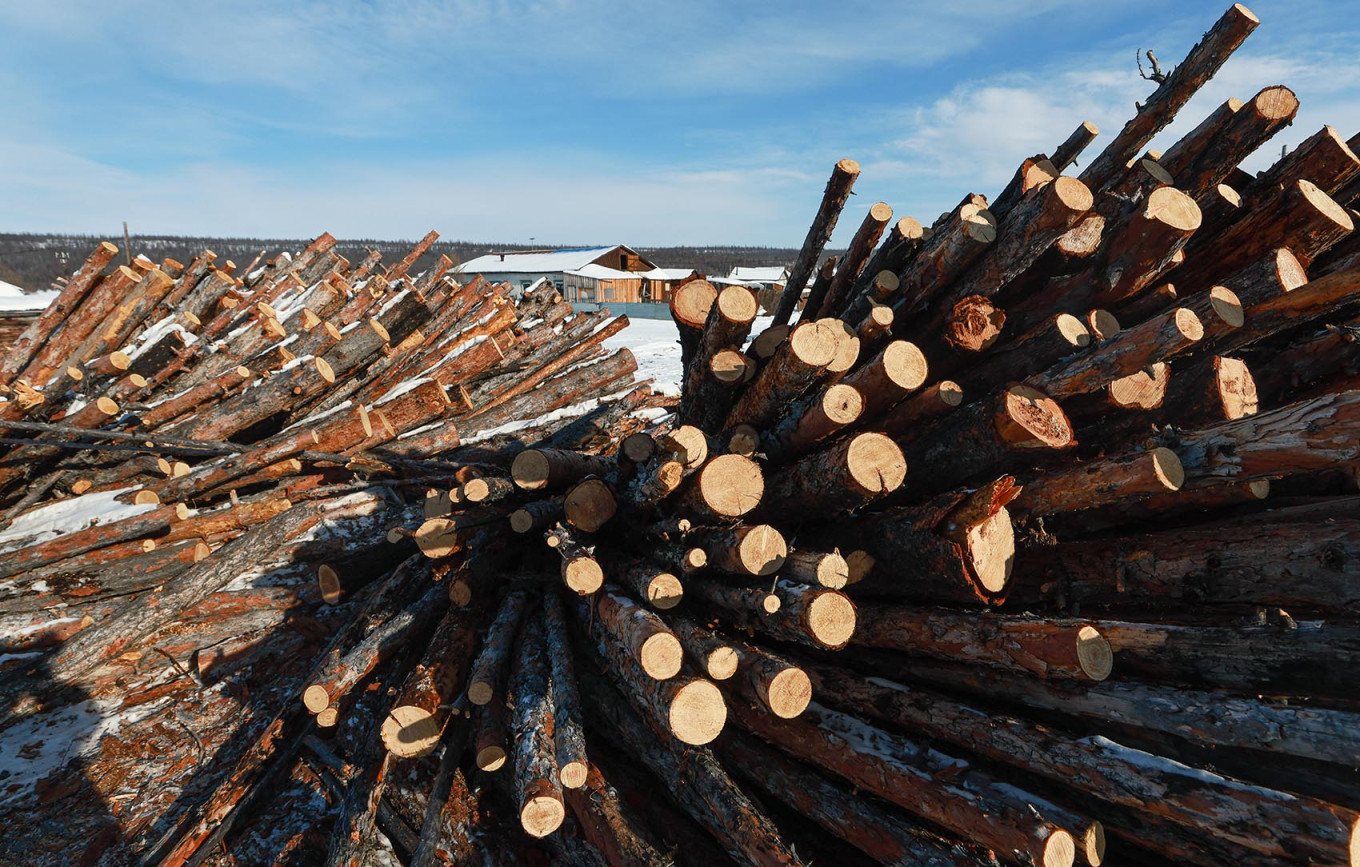
Larger ethnic minorities, including those who have their ethnic republics within Russia, are not recognized as Indigenous by Russian law, despite most of their representatives self-identifying as such.
Dr. Ekaterina Zibrova notes that Russia’s new policy towards minority Indigenous communities sets far less ambitious goals than its predecessor, which promised to improve these groups’ overall quality of life, increase their life expectancy and lower child mortality rates.
"The preceding policy framework set unrealistic goals which were not achieved at all, so the new one focuses on things that could be promised without being ashamed of not meeting the target, such as the development of languages," said Zibrova, an associate researcher at The Wits Center for Diversity Studies in Johannesburg.
In the document, the Russian government vows to support Indigenous minority languages by funding the development of new textbooks and digital tools such as keyboards, online dictionaries and digital translation software.
But experts say these measures are hardly enough to slow the rapid disappearance of these languages.
“These measures support specialists who study languages. In reality…practically nothing is being done on the ground to develop and preserve them,” Sulyandziga told The Moscow Times.
“Teachers of Indigenous languages are in a dire situation — they are completely unwanted and forgotten by the system. Meanwhile, the government showcases pretty pictures of books, keyboards, and so on. It's pure propaganda," he said.
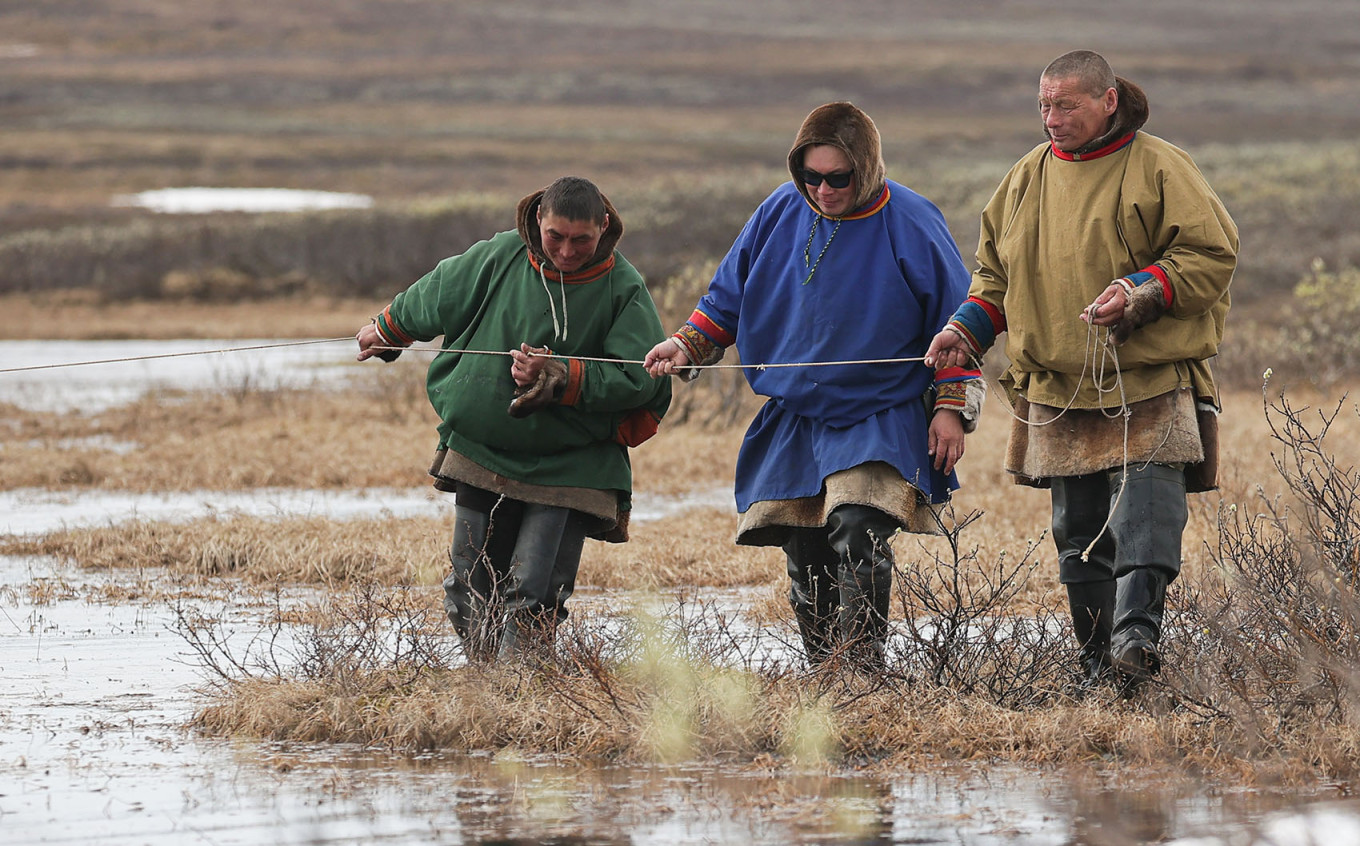
Far more alarming than the approach to language development is the new policy framework’s overwhelming emphasis on developing mechanisms for safeguarding the rights of Indigenous peoples vis-a-vis extractive industries, experts agree.
"The international community is the primary audience of this document,” Zibrova, a member of the small Indigenous group of the Evenki people, told The Moscow Times.
“The war [in Ukraine] won’t last forever and Russia wants to develop the Arctic. That can only be done with foreign investment. It’s the countries that more or less follow international agreements and safeguard the rights of Indigenous peoples that will provide those investments, so this signaling is crucial," Zibrova said.
When the Russian government announced plans to develop its rare earth metals deposits in cooperation with the U.S. earlier this year, activists warned that the deal could bring destruction to Indigenous lands where some of the largest deposits of these elements are located, including in the the republics of Komi, Sakha (Yakutia) and Buryatia.
Russia’s ambitions for developing the Arctic, too, clash with the interests and rights of the many Indigenous groups inhabiting the region as well as their efforts to preserve their traditional way of life.
Activist Sulyandziga, who has a long record of working on Indigenous issues within the UN system, believes Russia’s new policy framework manipulates mechanisms used to obtain the free, prior and informed consent of communities to operate on their lands, resulting in blatant violations of Indigenous rights.
The framework stipulates that most Russian regions “address issues concerning the rights and interests of the Indigenous minority peoples of the North” through the so-called “councils of representatives” established within the framework of local government.
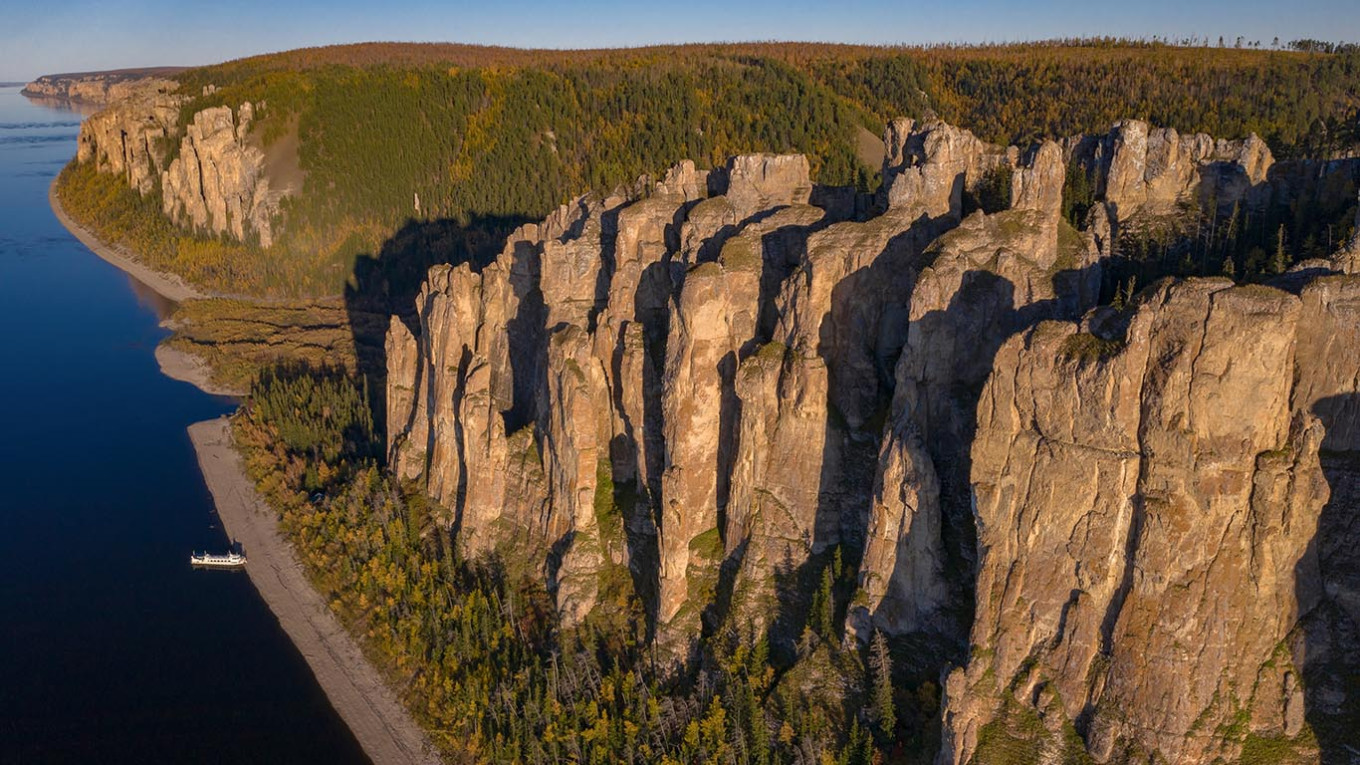
"When a business comes into a region or territory, wanting to extract gold, coal, diamonds or to cut down forests, it is supposed to obtain the consent of the Indigenous peoples,” Sulyandziga explained.
In the past, most Russian extractivist companies “cut, mined and dug” into Indigenous lands without obtaining any prior permission.
But now, “to show the international community that they supposedly follow the rules, they will seek consent from these councils” created with government oversight rather than independent bodies formed by concerned Indigenous communities, the activist said.
"They are not going to work directly with the people, with the communities that suffer from pollution and other harmful effects,” Sulyandziga warned.
While some Indigenous peoples try to influence policy through rubber-stamped bureaucracy, independent activists find themselves boxed in by ever-growing pressure from the Kremlin.
Earlier this year, Russia’s Federal Security Service (FSB) released a list of 172 ethnic, Indigenous rights and decolonial groups designated as “terrorist” organizations.
And this month, Sulyandziga’s Batani Foundation was outlawed as an “undesirable” organization.
“Indigenous people in Russia don’t have the opportunity to form a government or freely unite into political movements,” said expert Zibrova.
“And this policy framework shows who holds the power over the discourse in Russia and the power to protect: only the state,” she added.
An earlier version of this article inaccurately stated that Russia never ratified the 2007 UN Declaration on the Rights of Indigenous Peoples. This sentence has been removed, as UN declarations are not legally binding documents.
A Message from The Moscow Times:
Dear readers,
We are facing unprecedented challenges. Russia's Prosecutor General's Office has designated The Moscow Times as an "undesirable" organization, criminalizing our work and putting our staff at risk of prosecution. This follows our earlier unjust labeling as a "foreign agent."
These actions are direct attempts to silence independent journalism in Russia. The authorities claim our work "discredits the decisions of the Russian leadership." We see things differently: we strive to provide accurate, unbiased reporting on Russia.
We, the journalists of The Moscow Times, refuse to be silenced. But to continue our work, we need your help.
Your support, no matter how small, makes a world of difference. If you can, please support us monthly starting from just $2. It's quick to set up, and every contribution makes a significant impact.
By supporting The Moscow Times, you're defending open, independent journalism in the face of repression. Thank you for standing with us.
Remind me later.



